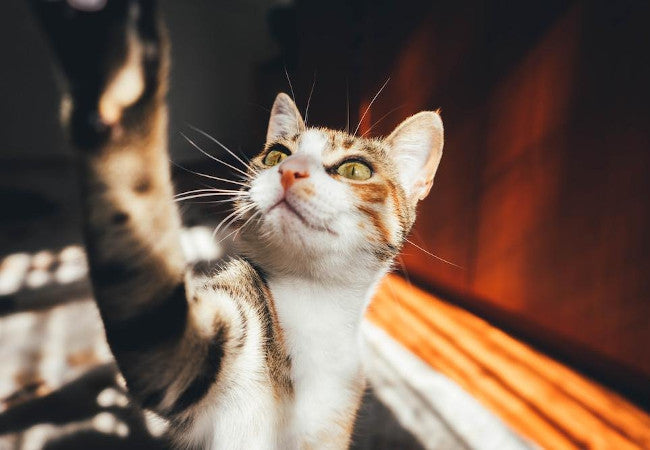Cats are curious and playful creatures, but these characteristics can expose them to not-so-obvious dangers and many of them involve household products. You can protect your cats' health by becoming aware of the most common household items that could be dangerous to them.
Some of the items are choking, strangulation or suffocation hazards, whilst others can cause intestinal damage or obstruction if swallowed:
Strings
Unfortunately, strings are not usually safe items for cats to play with. Not only are strings strangulation hazards, but if your cats swallow a string, it can cause an intestinal obstruction. Be sure to put away toys made of string when playtime is over.
Plastic bags
Never allow your cats to play with a plastic bag unsupervised. Your cats could get one of the bag handles wrapped around their neck, leading to potential suffocation, and could gradually create a bowel obstruction if they swallow plastic on a regular basis.
Batteries
If your mischievous cats chew on batteries, alkaline or acidic compounds get released, and they may start drooling, pawing at the mouth, and vomiting. Rinse your cats' mouth out thoroughly after exposure to batteries and seek veterinary attention promptly.
Electrical cords
From computer cords to kitchen and bathroom appliances, it's wise to take precautions to prevent your cats from getting shocked or worse. Never let cords dangle. Put them away when not in use and replace them immediately if the outer layer is exposed.
Human medicines
Some human over-the-counter and prescription medicines pose serious risks to cats, so keep them in a place your cats can't get into. Secure all cupboards, medicine chests, and closets. Use child-proof latches when possible.
Household chemicals and cleaning products
Stow all household chemicals and cleaning products in properly sealed containers and in latched cabinets. Also, make sure all excess liquid or residue is eliminated. Since cats are fastidious groomers, anything that makes contact with their skin may be ingested whilst they clean themselves. Consider using nontoxic alternatives, such as vinegar and baking soda.
Essential oils
Never purchase soaps, cleansers, or other products containing essential oils. If ingested, the aromatic compounds can damage your cats' intestines, central nervous system, respiratory system, and liver.
If your cats show any of the following signs, take them to a vet immediately:
- Reduced appetite
- Vomiting
- Lethargy
- Seizures
- Rapid, shallow breathing
If you suspect that your cats may have swallowed or touched something poisonous, the best course of action is to contact your vet for further advice. The sooner veterinary intervention is made, the greater their chances of survival.
Source: ASPCA
Featured image by halil i̇brahim

